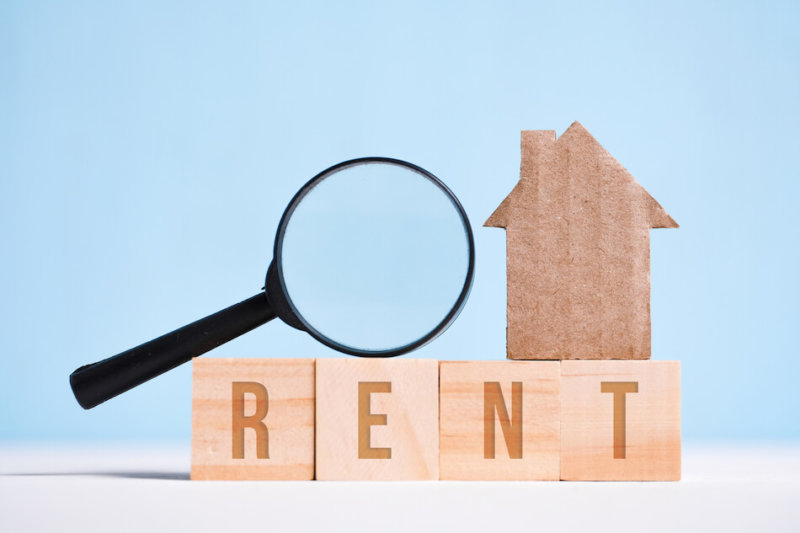What you need to know as a first-time landlord in Brunswick.
What you need to know as a first-time landlord in Brunswick
If you’re looking to get into the property rental game, it’s best to start with some research and ensure you’re up to speed on all the regulations and basics of what you need to do. This article will cover some of the things you need to know and can serve as the jumping-off point for further research.
All too often, people go in feet first with property investment and then learn as they go, which can be a mistake that can end up costing you. Even if you’ve been a landlord for a while, it can be a good idea to brush up on the basics and ensure you understand all the current trends and ideas with property investment.
Understanding the Types of Leases
A lease or rental tenancy agreement is a contract between the tenant and landlord. The contract will outline the rental terms and conditions that both parties will agree on. When you have a solid rental agreement, it makes everything clear and can help to settle any disputes as they arise during the rental period.
Generally, there are two types of leases that you’ll use for your property investment.
Periodic lease
A periodic or month-to-month lease doesn’t have a specific timeframe and will continue as long as both parties agree.

Fixed term lease
A fixed-term lease is for a specific time frame, commonly six or twelve months, but you can have longer leases. After the lease has expired, a new lease can be signed, or the agreement can continue automatically on a predetermined time frame if outlined in the contract.
Tenancy Agreements
A tenancy agreement covers what a landlord must provide to a lease before they move into the property. Each state of Australia is different, and if you have an interstate property, you’ll need to check what is required in that particular state. Property owners leasing a property in Victoria will provide the following:
- A copy of the rental agreement
- A copy of the Renters Guide in either paper or electronic form (if the renters agree to receive the electronic version)
- Phone numbers and contact details in case the renter needs to get emergency repairs completed outside of regular business hours
- The landlord or property agent’s full name, postal address, and email address (if they agree to receive emails)
- A set of keys for everyone who has signed the rental agreement
- A property condition report (two copies or one electronic)
Rental Bonds
A rental bond will act as security for the tenancy agreement, and it usually consists of the value of up to four weeks of rent. This bond is paid at the beginning of the rental period and will be returned to the tenant after they vacate the property. If there are any unreasonable damages to the property, the bond will be used to make appropriate repairs, with the balance (if any) returned to the tenant.
In Victoria, the bond is lodged with the state Bond Authority. The bond lodgement must be completed by the landlord or a property manager completing it on their behalf.
Condition Reports
Condition reports will detail the property’s current condition, which should be completed before the tenant moves into the property. The landlord and the tenant will agree on a condition report. The tenant may request an independent property inspector complete a condition report, usually paid for by the tenant.
A condition report will detail all the current fixtures, furniture, and general state of the property. Having a thorough condition report completed is the best method to ensure your property is maintained and returned to you in a reasonable state after the tenant has vacated. A condition report can be used as evidence if any damages need to be repaired after the lease expires.
It is highly recommended that photos (or videos) are taken as a part of the condition report and that any existing damage is noted. All photos and videos must be taken shortly before the tenant moves into the property, and the tenant has a reasonable amount of time to review and agree to the report.
Reading the Residential Tenancies Act
As a landlord, you should reasonably understand the Residential Tenancies Act for your state. This Act will describe the rights of both you and your tenant and provides the framework that all tenancies need to adhere to. The Act can be relied upon to resolve many issues arising during a rental agreement.
Landlord Insurance
A big mistake that new landlords can make is assuming their household insurance will cover any damage caused by a tenant. Ensure you don’t make a similar mistake and have landlord insurance organised before your tenants move into your property.
You should also recommend that the tenants get appropriate contents insurance, as they may not be aware that they’ll need it if something happens to their belongings (theft, fire, etc.).
Conduct Regular Inspections
As a landlord, you have the right to inspect the property at reasonable timeframes. However, most landlords feel a little uncomfortable walking through someone else home, and if this is the case, you can hire a property manager to complete these checks and take care of the property for you.
When completing a property inspection, it’s important to note that you’re not looking at how the tenant lives but ensuring the property is maintained according to the tenancy agreement. Therefore, while it may feel uncomfortable, it is a vital step in looking after your investment.
In most rental agreements, you’ll have the opportunity to inspect the property every six months. Any more than that may feel like an intrusion, and the tenant may be unwilling to sign the agreement. If any issues are detected during the inspection, the tenant may be requested to make repairs if it’s determined that the issues are caused by negligence. If damage is caused by general wear and tear, the landlord may repair it if they choose.
Notice Periods
When a landlord plans to enter the property after it is leased, they must provide reasonable notice to the tenants. A landlord may need access to the property to complete repairs, complete inspections, arrange for photography (if the property is being sold or up for a new lease), or erect advertising boards.
If you or your tenants decide to end the lease earlier than intended, the rental agreement will detail the notice period.
Allowing Pets
More than 60% of households in Australia have a pet, and the laws around pet ownership and tenants state that a tenant must ask for permission before they introduce a pet into the home. However, a landlord can only refuse if they have a good reason.
When you’re opening to leasing your property to people with pets, it can increase your pool of applicants, which can mean you end up with better tenants than if you were to request a tenant with no pets.
Create and Follow a Tenant Screening Process
Getting the wrong tenant in your property can make or break your investment. A good tenant will stay in the property and look after it as if it is their own home, and they may stay on for many years. A bad tenant may be inconsistent with rent payments and cause many other issues. However, when you have the right screening processes, it is less likely that you’ll get the wrong type of tenant on your property.
Write down some clear goals for the type of tenant you wish to have in your property, and complete the necessary checks to ensure prospective tenants are honest with you. Some of the basic checks you’ll need to complete are the employment history and past rental references. An experienced property manager can help complete many of these checks and help you secure a good tenant.
Keep your Records Organised
Having an excellent record-keeping system in place can help you out if any issues arise during the tenancy. When you have repairs completed, these should be noted in your records and can be provided to the tenant if they request proof that the repairs have been completed. Good record keeping can also be used as evidence if you have a dispute with the tenant, where they’re stating repairs were not completed on time.
Leasing a property should be considered the same as running a business. Consider consulting with a tax professional on the type of records you should keep to help reduce your overall tax obligations. If you have handwritten documents, it may be best to convert these to a digital file for future reference, as printed documents can be easily destroyed.
Have an Experience Team Working for You
While it is possible to go it alone and lease your property directly if you don’t have experience with property management, it can become time-consuming. Many experienced and first-time landlords rely on the services of a property management team to take care of their investments.
When you lease your investment, you should take the time to find a quality team to manage your property. Property managers will work for you to ensure your investment receives the best care possible and help you maintain a good relationship with your tenant.
